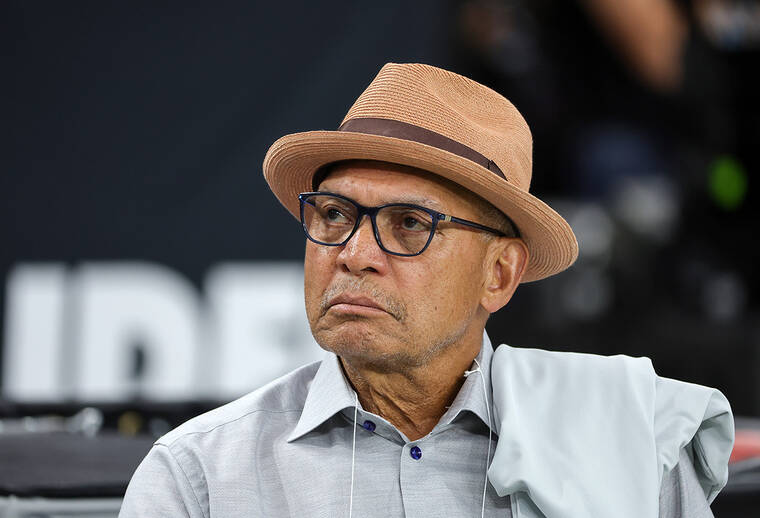Reggie Jackson’s honesty about racism he faced in Birmingham more powerful than any homer he ever hit
Reggie Jackson is still hitting them out of the park.
Not since the former Yankee slugger clouted three home runs in a World Series game against the Dodgers in 1977 has Jackson done more with a pitch in the strike zone.
ADVERTISING
This time, it was Alex Rodriguez, of all people, serving up the fast ball.
The occasion was a nationally-televised major league game last week honoring Willie Mays and the Birmingham, Alabama, ball field where the baseball legend began his professional career in the Negro Leagues.
Mays, one of the few players to hit more home runs than Jackson, had just died a couple of days before at the age of 93.
Rodriguez, another former Yankees slugger, asked Jackson during the Fox Sports broadcast how he felt about returning to Birmingham’s historic Rickwood Field, where he played in the minor leagues.
What followed was more than three minutes of brutal, painful honesty, and a clip to rival any of Jackson’s home run highlight reels.
Jackson, who played in Birmingham, spoke of the racism he endured with the Athletics’ Double-A team in 1967.
“Coming back here is not easy,” Jackson said. “The racism when I played here, the difficulty of going through different places where we traveled. Fortunately, I had a manager and I had players on the team that helped me get through it.”
“I walked into restaurants, and they would point at me and say, ‘The n—-r can’t eat here,’” Jackson said. “I would go to a hotel, and they would say, ‘The n—-r can’t stay here.’”
Jackson said they went to team owner Charlie Finley’s country club for a welcome home dinner.
“They pointed me out with the N-word: ‘He can’t come in here,’” Jackson recalled. “Finley marched the whole team out. He said, ‘We’ll go where we’re wanted.’”
In his 21 big league seasons, Jackson was hit by a pitch 96 times. None of them stung more than what he endured during the 114 games he played for the Birmingham A’s.
“Fortunately, I had a manager in Johnny McNamara that, if I couldn’t eat in the place, nobody would eat,” Jackson said.
“We’d get food to travel. If I couldn’t stay in a hotel, they’d drive to the next hotel and find a place where I could stay. Had it not been for Rollie Fingers, Johnny McNamara, Dave Duncan, Joe and Sharon Rudi, I slept on their couch three, four nights a week for about a month and a half. Finally, they were threatened that they would burn our apartment complex down unless I got out.”
Fans who like their history in neat little boxes like to think that it was only Jackie Robinson who had to endure the racist taunts. Many understand that players like Mays and Henry Aaron. former Negro leaguers, also paid a price to pave the way for others.
But few would associate Reggie Jackson — who famously fought with Billy Martin, and clashed with Thurman Munson — with pioneers who suffered so future Black players could thrive in the game.
Much has been said about greatness in the days since Mays died. There have been endless highlight reels and a trove of warm tributes.
But no one, no one, did a better job of honoring Willie and Hank and Jackie, and Birmingham than the man known as Mr. October.


